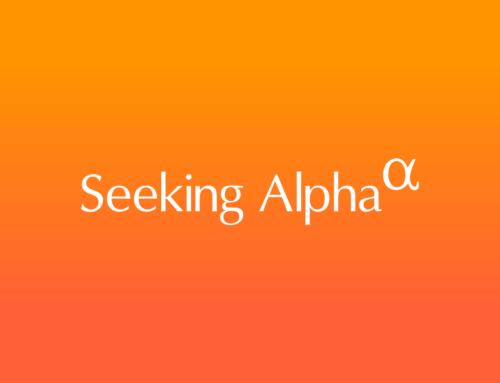Walmart Just Fired A Big AI Shot Across Amazon’s Bow
October 26, 2025
Walmart announced that its teaming up with OpenAI to enable shopping directly through ChatGPT. Starting this fall, according to Bloomberg, ChatGPT users will be able to shop nearly all of Walmart’s assortment, i.e. apparel, entertainment, packaged food, and even products from third-party sellers (the lone exception being fresh food), directly through a “buy” button without ever leaving the chat interface. Even one’s Walmart or Sam’s Club account will get automatically linked.
It’s an idea that is seamless, convenient, and potentially great for consumers. It’s also one that is a direct assault on Amazon’s e-commerce dominance.
Enter The Marketplace of Marketplaces
Here’s where things start to get interesting. What OpenAI is creating with ChatGPT is what I would call the “marketplace of marketplaces.” Walmart is smart to plug into it because it hits Amazon right where it hurts.
Search.
Prior to ChatGPT, commerce searches were a two-horse race, Google and Amazon. In 2023, aka prior to AI, according to eMarketer, somewhere in the range of 50% to 60% of consumers started their product searches either via Amazon or via search engines (i.e. Google), with Walmart, YouTube, Meta, and TikTok duking it out for the residual share of traffic.
Walmart, therefore, has nothing to lose by linking up with ChatGPT. It was third banana before and still will be, only now ChatGPT will serve as one big affiliate linking traffic schema for Walmart on a major share of e–commerce product searches to which Walmart previously never had access. In others words, it is a really juicy banana.
Moreover, even if Amazon takes a similar approach to Walmart and integrates with ChatGPT, Walmart should still win out in the long-run because of one word, “optionality.”
Think about it.
When all the items Walmart carries on its marketplace are almost exactly the same as what Amazon carries, who will win? The answer is whoever can offer more omnichannel options and conveniences.
The possibilities that ChatGPT’s language processing can work through are endless. For example, do you want to pick up your items at a store? Do you want them shipped to your house? Do you want them delivered same-day? The beauty of ChatGPT is that it will allow people to design the shopping experience that works best for them.
Walmart can offer that. Amazon can’t. Amazon doesn’t have 4,600 plus stores within 10 miles of 90% of the U.S. population. Walmart does. This is Walmart taking its physical store advantage and weaponizing it in the AI age.
The Strategic Exclusion Of Fresh Food Says More Than You Think
The fact that fresh food is not included in the offering indicates that Walmart is being extraordinarily thoughtful about this move. While many people, particularly my wife, are using ChatGPT for recipe creation and meal planning, Walmart understands that there is no point in catering to this behavior and showing its hand in grocery just yet.
Grocery is Walmart’s differentiation point. It’s Walmart’s biggest competitive advantage. It’s what separates Walmart from everyone else in the marketplace. According to Placer.ai, nearly one-third of all grocery trips in the United States run through Walmart. By excluding fresh food from this initial ChatGPT integration, Walmart is protecting what makes it special while still opening up a massive new channel for everything else.
Walmart is not saying that it will never do it. It is just not doing it to start. That restraint is what separates good strategy from great strategy.
The Retail Media Endgame
What’s even greater or more admirable, however, is that this move is also about far more than just selling products, be it groceries or otherwise, through ChatGPT. It’s also about growing Walmart’s marketplace and the synergistic relationship between marketplaces and retail media. The faster Walmart, or any retailer for that matter, can grow its marketplace, the more high margin retail media dollars it can capture, high margin dollars that it can then redeploy back into Walmart’s omnichannel flywheel that has been running like a well-oiled machine for the past five or six years.
Last November, Walmart CFO John David Rainey told investors that, in just three years since starting up Walmart Connect (Walmart’s advertising arm), almost a third of Walmart’s overall operating income already comes from advertising.
Therefore, this ChatGPT integration won’t just help to drive product sales. It will also help to turn the already too hot-to-touch Walmart Connect business into a full-fledged conflagration.
Why This All Matters In The Long-Run
What keeps me up at night is that we are watching the birth of a new commerce paradigm. AI agents and chat interfaces could, and possibly will, change how people discover and purchase products.
The retailers who figure out how to win in this environment are going to be the ones, like Walmart, who don’t fall asleep at the wheel like the industry did for the 10 or 15 years following the birth of e-commerce, and instead move early, move strategically, and think about how to turn their physical assets into competitive advantages rather than liabilities.
Traditional e-commerce taught us that convenience wins. The AI commerce era will teach us that convenience plus optionality will win even more. Having more options is always better than having none, especially when someone or something (AI) can reduce the cognitive load of the decision-making.
Walmart gets this.
Walmart understands that their stores aren’t just places to shop. They are also fulfillment centers, pickup locations, and experiential destinations all rolled into one. And in a world where ChatGPT or similar AI interfaces could become the primary way people search for and discover products, having stores should become an advantage over anyone that does not.
This is what intentional strategy looks like. This is what it means to be playing the long game while everyone else is worried about quarterly results.
So mark my words. This announcement is going to look even smarter years from now than it does today, and, if Amazon doesn’t respond with something equally bold, Amazon will run the risk of looking back on this day as the day it slipped on the peel of Walmart’s very own banana.
Search
RECENT PRESS RELEASES
Related Post



